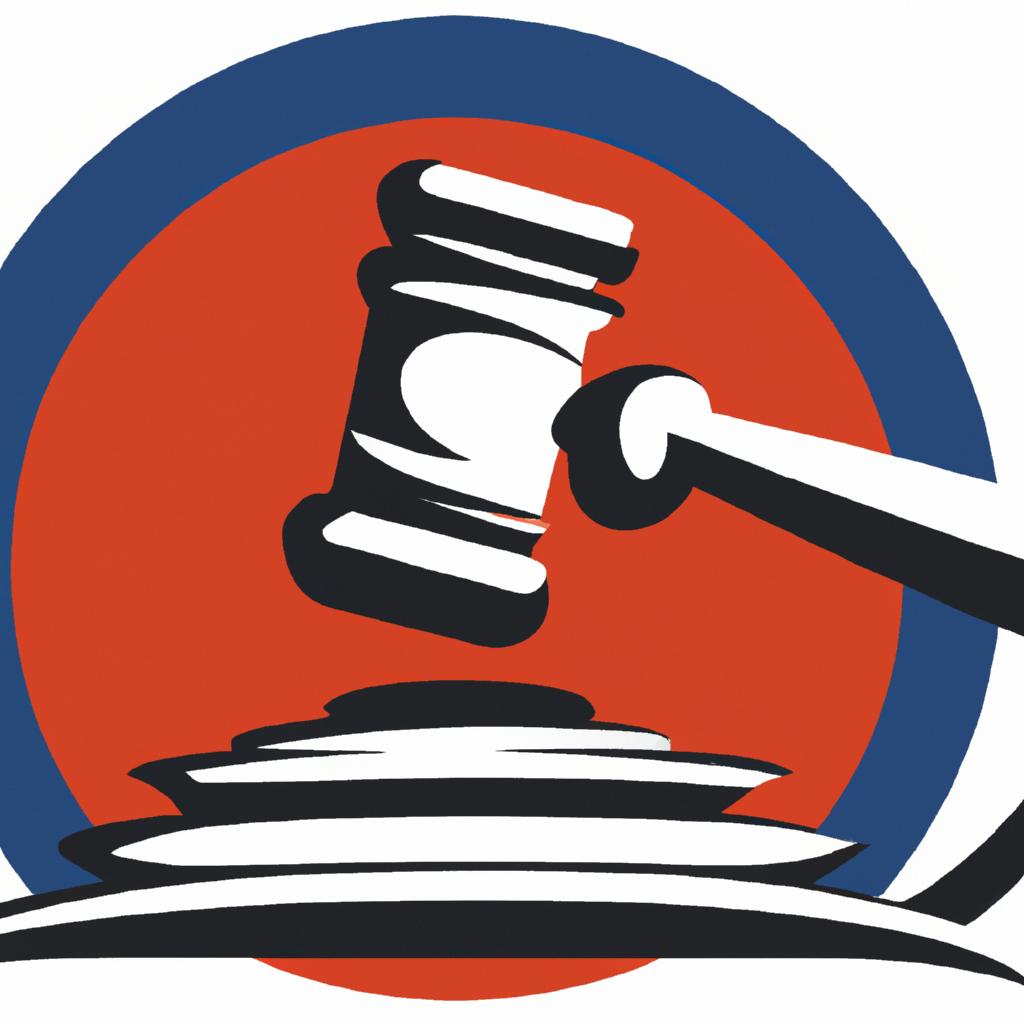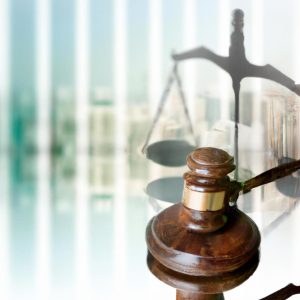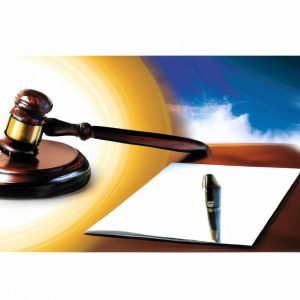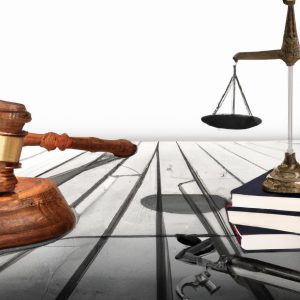In the intricate web of estate planning and probate proceedings, one central figure holds the power to dictate the distribution of assets, settle debts, and ensure the orderly transition of wealth – the testator of a will. As experienced practitioners in the field of estate law, the Morgan Legal Group in New York City understands the critical role that a testator plays in shaping the future of their loved ones and beneficiaries. From crafting Wills to establishing trusts, we work diligently to guide our clients through the complex process of testamentary planning with precision and expertise. Join us as we explore the nuances of this pivotal role and unravel the significance of a testator’s legacy in the world of estate law.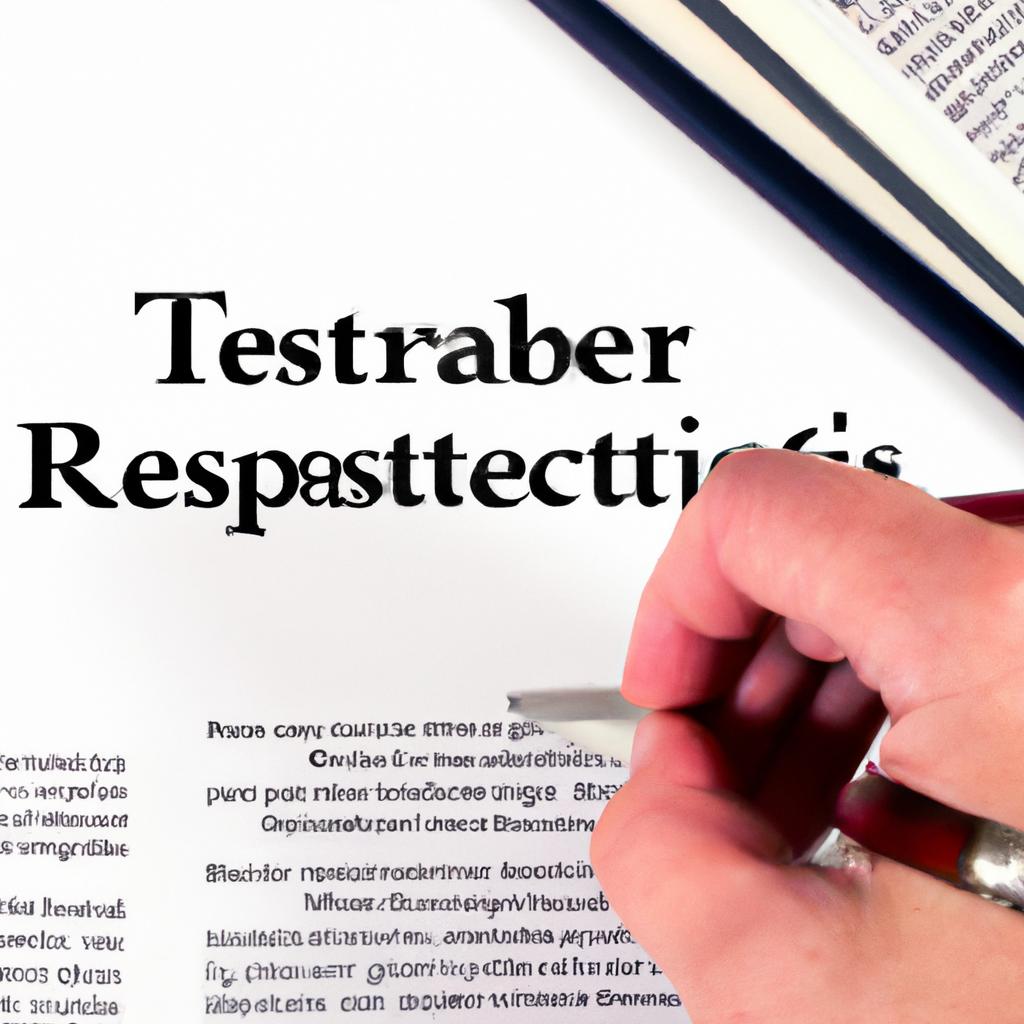
Understanding the Legal Responsibilities of a Testator
When it comes to , it is crucial to recognize the weight of this role in the execution of a will. A testator, also known as the person who creates a will, holds significant legal obligations that must be fulfilled in order for the will to be valid and legally enforceable. These responsibilities are designed to ensure that the testator’s final wishes are accurately and faithfully carried out after their passing.
One key legal responsibility of a testator is to clearly outline their wishes regarding the distribution of their assets and property in the will. This involves carefully identifying beneficiaries, specifying the gifts or bequests each will receive, and detailing any conditions or instructions for these distributions. Additionally, a testator must appoint an executor to oversee the administration of the estate, manage any debts or taxes owed, and ensure that the terms of the will are carried out according to the law.
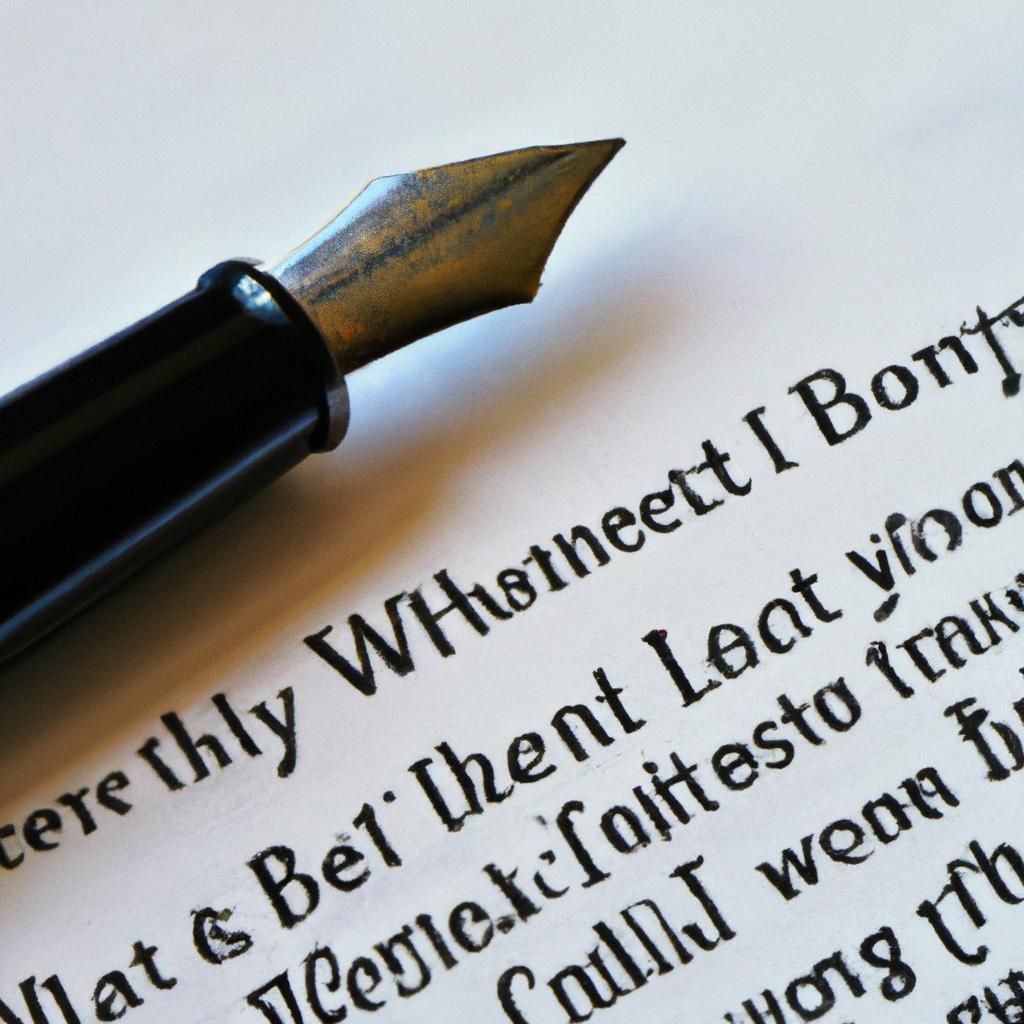
Key Considerations When Designating Beneficiaries in a Will
When designating beneficiaries in a will, it is important for the testator to carefully consider several key factors in order to ensure their wishes are carried out as intended. One of the most crucial considerations is ensuring that the beneficiaries named in the will are clearly identified and their relationship to the testator is accurately reflected.
Additionally, it is essential for the testator to keep in mind any potential conflicts that may arise among beneficiaries, as well as any unique circumstances that could impact their ability to receive the intended inheritance. It is also advisable to review and update beneficiary designations regularly to account for any significant life changes, such as marriages, divorces, births, or deaths in the family.

Navigating the Complexities of Estate Tax Planning as a Testator
Estate tax planning can be a daunting task for any testator, as there are numerous complexities and nuances to consider when creating a comprehensive plan for the distribution of assets. One of the key considerations in estate tax planning is determining the value of the estate and identifying potential tax liabilities. A thorough understanding of applicable tax laws and regulations is crucial to ensure that your heirs are not burdened with unnecessary taxes.
Another important aspect of estate tax planning is the use of various strategies to minimize tax liabilities and maximize the value of the estate for your beneficiaries. This may include setting up trusts, gifting assets during your lifetime, or utilizing charitable giving to reduce the overall tax burden. Working with an experienced estate planning attorney can help you navigate these complexities and develop a customized plan that meets your specific needs and goals.

Consulting with an Experienced Attorney to Ensure Proper Will Execution
When it comes to the important task of drafting a will, consulting with an experienced attorney is essential to ensure proper execution. A **testator** must follow certain legal procedures to ensure that their wishes are carried out effectively and without any complications. By working with a skilled attorney, individuals can rest assured that their will is drafted correctly and meets all legal requirements.
Some key reasons to consult with an attorney when executing a will include:
- Understanding state-specific laws and regulations
- Ensuring all necessary documents are properly prepared and signed
- Protecting the will from potential legal challenges
| Benefit 1 | Ensures proper distribution of assets |
| Benefit 2 | Minimizes estate taxes |
| Benefit 3 | Provides peace of mind for the testator and their loved ones |
Q&A
Q: What is a testator of a will?
A: A testator is the person who creates a will or testament.
Q: Can anyone be a testator?
A: Generally, anyone of sound mind who is of legal age can be a testator.
Q: What is the significance of being a testator?
A: Being a testator means that you have the authority to determine how your assets will be distributed after your passing.
Q: Can a testator change their will?
A: Yes, a testator can update or change their will at any time as long as they are of sound mind.
Q: What happens if a testator dies without a will?
A: If a testator dies without a will, their assets will be distributed according to the laws of intestacy in their state or country.
Q: How can someone become a testator?
A: To become a testator, one must create a legally valid will that meets all requirements set forth by the laws of their jurisdiction.
The Conclusion
In conclusion, understanding the role of a testator in creating a will is crucial in ensuring that their final wishes are honored and their estate is distributed according to their instructions. By carefully considering their options and seeking professional guidance, testators can leave behind a legacy that reflects their values and provides for their loved ones. Remember, creating a will is not just a legal obligation, but a meaningful way to secure your legacy for future generations. Thank you for reading.
 Understanding the Role of a Testator in a Will
Understanding the Role of a Testator in a Will
Writing a will is an essential step in ensuring that your final wishes are carried out after your passing. It allows you to dictate who will receive your assets and belongings and how they will be distributed. At the center of the will-making process is the testator, the person responsible for creating and signing the will. In this article, we will take a closer look at the testator of a will, their role, and their responsibilities.
Who is the Testator?
A testator is the person making the will. They are also commonly referred to as the “testatrix” for a female or the “testate” if the will is gender-neutral. The testator has the legal authority to decide how their assets will be distributed and name the executor of their will. In many cases, the executor is also the testator’s trusted family member or friend.
What are the Qualifications of a Testator?
In most jurisdictions, the qualifications for being a testator are minimal. The person must be of legal age and must have reached the threshold for testamentary capacity. Testamentary capacity refers to the mental capacity of the testator to understand the consequences of making a will. They should also have a clear understanding of their assets, their legal rights and obligations, and the implications of their final decisions.
What are the Duties of a Testator?
As the creator of the will, the testator should have a clear understanding of their role and responsibilities. Some of the key duties of a testator are as follows:
1. Choosing an executor: The testator must appoint an executor who will be responsible for administering the estate according to their wishes. The executor should be someone who is trustworthy, responsible, and capable of handling the distribution of assets and following the legal requirements.
2. Identifying the beneficiaries: The testator should clearly identify the beneficiaries of their assets in the will. They can choose to leave their assets to family, friends, or charity organizations, among others. The will can also include provisions for any specific conditions or circumstances that the beneficiaries are required to fulfill.
3. Determining the distribution of assets: The testator is responsible for deciding how their assets will be distributed among their beneficiaries. They can choose to divide their assets equally or specify a percentage each beneficiary will receive. The testator can also decide on any specific gifts or bequests they wish to make.
4. Listing down all assets: It is the testator’s duty to provide a comprehensive list of assets in the will. This includes real estate, bank accounts, investments, and personal belongings. It is crucial to provide accurate and up-to-date information to avoid any potential legal issues.
5. Signing the will: The testator should sign the will in the presence of at least two witnesses who are unrelated to them. The witnesses must also sign the will to validate its authenticity and legality. The testator should also ensure that the will is properly dated and stored in a safe place.
Benefits and Practical Tips for the Testator
Writing a will is a significant responsibility that comes with its fair share of benefits. Here are some practical tips for the testator to keep in mind during the will-making process:
1. Seek professional help: While it may be tempting to write your own will, it is highly recommended to seek professional help from a lawyer or estate planning expert. They can guide you through the legal requirements and ensure that your will is valid and legally sound.
2. Communicate with your beneficiaries: It is essential to communicate with your beneficiaries about your decision to write a will. This will help manage their expectations and avoid potential conflicts after your passing.
3. Update your will regularly: Your will should be reviewed and updated regularly, especially after any significant life changes such as marriage, divorce, or the birth of a child. This ensures that your will accurately reflects your final wishes.
Testator: A Case Study
A common misconception about wills is that they are only necessary for those with sizable assets. However, a recent survey showed that nearly 60% of Americans do not have a will. This case study highlights the importance of wills, regardless of the value of one’s assets.
John and Sarah had been married for 20 years, and their two children were still young when John passed away unexpectedly. The family was unaware of John’s assets and how he wanted them to be distributed. They were left to go through a lengthy and costly probate process due to the lack of a will.
John had always intended to create a will but never got around to it. This unfortunate situation could have been avoided if John had taken the time to write a will and name an executor. Not only would it have eased the burden on his family, but it would have ensured that his final wishes were carried out.
In conclusion, the testator plays a crucial role in the will-making process. They have the power to dictate how their assets will be distributed and provide peace of mind for their loved ones. By understanding their responsibilities and seeking professional guidance, the testator can ensure that their final wishes are fulfilled. Remember, it is never too early to start planning for the future by creating a will.

